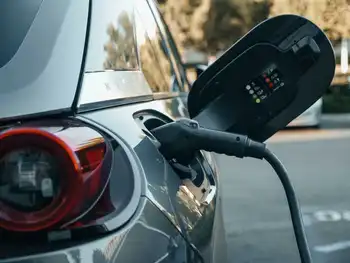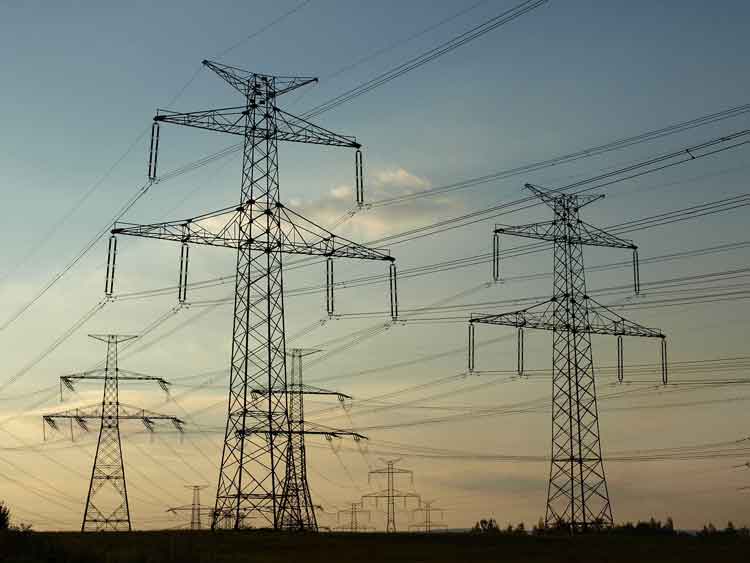Ukraine Winter Energy Strategy strengthens the power grid through infrastructure repairs, electricity imports, renewable integration, nuclear output, and conservation to ensure reliable heating, blackout mitigation, and grid resilience with international aid, generators, and transmission lines.
Key Points
A wartime plan to stabilize Ukraine's grid via repairs, imports, renewables, and nuclear to deliver reliable electricity.
✅ Repairs, imports, and demand management stabilize the grid.
✅ Renewables and nuclear reduce outage risks in winter.
✅ International aid supplies transformers, generators, expertise.
As Ukraine braces for the winter months, the question of how the country will keep the lights on has become a pressing concern, as the country fights to keep the lights on amid ongoing strikes. The ongoing war with Russia has severely disrupted Ukraine's energy infrastructure, leading to widespread damage to power plants, transmission lines, and other critical energy facilities. Despite these challenges, Ukraine has been working tirelessly to maintain its energy supply during the cold winter months, which are essential not only for heating but also for the functioning of homes, businesses, hospitals, and schools. Here's a closer look at the steps Ukraine is taking to keep the lights on this winter and ensure that its people have access to reliable electricity.
1. Repairing Damaged Infrastructure
One of the most immediate concerns for Ukraine's energy sector is the extensive damage inflicted on its power infrastructure by Russian missile and drone attacks. Since the war began in 2022, Ukraine has faced repeated attacks targeting power plants, substations, and power lines, including strikes on western regions that caused widespread outages across communities. These attacks have left parts of the country with intermittent or no electricity, and repairing the damage has been a monumental task.
However, Ukraine has made significant progress in restoring its energy infrastructure. Government agencies and energy companies have been working around the clock to repair power plants and transmission networks. Teams of technicians and engineers have been deployed to restore power to areas that have been hardest hit by Russian attacks, often under difficult and dangerous conditions. While some areas may continue to face outages, efforts to rebuild the energy grid are ongoing, with the government prioritizing critical infrastructure to ensure that hospitals, military facilities, and essential services have access to power.
2. Energy Efficiency and Conservation Measures
To cope with reduced energy availability and avoid overloading the grid, Ukrainian authorities have been encouraging energy efficiency and conservation measures. These efforts are particularly important during the winter when demand for electricity and heating is at its peak.
The government has implemented energy-saving programs, urging citizens and businesses to reduce their consumption and adopt new energy solutions that can be deployed quickly. Measures include limiting electricity use during peak hours, setting thermostats lower in homes and businesses, and encouraging the use of energy-efficient appliances. Ukrainian officials have also been promoting public awareness campaigns to educate people about the importance of energy conservation, which is crucial to avoid grid overload and ensure the distribution of power across the country.
3. Importing Energy from Abroad
To supplement domestic energy production, Ukraine has been working to secure electricity imports from neighboring countries. Ukraine has long been interconnected with energy grids in countries such as Poland, Slovakia, and Hungary, which allows it to import electricity during times of shortage. In recent months, Ukraine has ramped up efforts to strengthen these connections, ensuring that it can import electricity when domestic production is insufficient to meet demand, and in a notable instance, helped Spain during blackouts through coordinated cross-border support.
While electricity imports from neighboring countries provide a temporary solution, this is not without its challenges. The cost of importing electricity can be high, and the country’s ability to import large amounts of power depends on the availability of energy in neighboring nations; officials say there are electricity reserves and no scheduled outages if strikes do not resume. Ukraine has been actively seeking new energy partnerships and working with international organizations to secure access to electricity, including exploring the potential for importing energy from the European Union.
4. Harnessing Renewable Energy Sources
Another key part of Ukraine's strategy to keep the lights on this winter is tapping into renewable energy sources, particularly wind and solar power. While Ukraine’s energy sector has historically been dependent on fossil fuels, the country has been making strides in integrating renewable energy into its grid. Solar and wind energy are particularly useful in supplementing the national grid, especially during the winter months when demand is high.
Renewable energy sources are less vulnerable to missile strikes compared to traditional power plants, making them an attractive option for Ukraine's energy strategy. Although renewable energy currently represents a smaller portion of Ukraine’s overall energy mix, its contribution is expected to increase as the country invests more in clean energy infrastructure. In addition to reducing dependence on fossil fuels, this shift is aligned with Ukraine’s broader environmental goals and will be important for the long-term sustainability of its energy sector.
5. International Aid and Support
International support has been crucial in helping Ukraine keep the lights on during the war. Western allies, including the European Union and the United States, have provided financial assistance, technical expertise, and equipment to help restore the energy infrastructure, though Washington recently ended some grid restoration support as priorities shifted. In addition to rebuilding power plants and transmission lines, Ukraine has received advanced energy technologies and materials to strengthen its energy security.
The U.S. has sent electrical transformers, backup generators, and other essential equipment to help Ukraine restore its energy grid. The European Union has also provided both financial and technical assistance, supporting Ukraine’s efforts to integrate more renewable energy into its grid and enhancing the country’s ability to import electricity from neighboring states.
6. The Role of Nuclear Energy
Ukraine’s nuclear energy plants play a critical role in the country’s electricity supply. Before the war, nuclear power accounted for around 50% of Ukraine’s total electricity generation, and for communities near the front line, electricity is civilization that depends on reliable baseload. Despite the ongoing conflict, Ukrainian nuclear plants have remained operational, though they face heightened security risks due to the proximity of active combat zones.
In the winter months, nuclear plants are expected to continue providing a significant portion of Ukraine's electricity, which is essential for meeting the country's heating and power needs. The government has made efforts to ensure the safety and security of these plants, which remain a vital part of the country's energy strategy.
Keeping the lights on in Ukraine during the winter of 2024 is no small feat, given the war-related damage to energy infrastructure, rising energy demands, and ongoing security risks. However, the Ukrainian government has taken proactive steps to address these challenges, including repairing critical infrastructure, importing energy from neighboring countries, promoting energy efficiency, and expanding renewable energy sources. International aid and the continued operation of nuclear plants also play a vital role in ensuring a reliable energy supply. While challenges remain, Ukraine’s resilience and determination to overcome its energy crisis are clear, and the country is doing everything it can to keep the lights on through this difficult winter.
Related News













